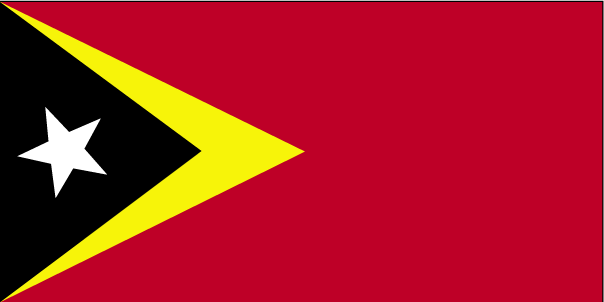East Timor: Ten years of independence
Sources for the following article, which was published in the September-October 2012 NewsNotes, include BBC News, FMT News, and the East Timor and Indonesia Action Network (ETAN).
East Timor’s road to sovereignty – achieved on May 20, 2002 – was long and traumatic. An independent report commissioned by the UN transitional administration in East Timor said that at least 100,000 Timorese died as a result of Indonesia’s 25-year occupation, which was backed by a succession of U.S. administrations – from Presidents Ford to Clinton – that provided Jakarta diplomatic cover and billions of dollars in weaponry, military training, and economic assistance. Sources for the following article, which was published in the September-October 2012 NewsNotes, include BBC News, FMT News, and the East Timor and Indonesia Action Network (ETAN).
Following a long struggle for independence and increasing international pressure, the occupation ended in 1999 with a referendum that showed overwhelming support for independence and provoked a rampage by the militia, which murdered hundreds and reduced whole towns to ruins. An international peacekeeping force was sent in to stop the violence and to pave the way for the United Nations Mission of Support in East Timor (UNMISET), which stayed until May 2005.
Another outbreak of violence a year later prompted the UN Security Council to set up a new peacekeeping force, the UN Integrated Mission in East Timor (UNMIT), which has a mandate until the end of 2012.
This past April, the former armed forces chief, Taur Matan Ruak, won the second round of presidential elections. In July, Prime Minister Xanana Gusmao’s National Congress for Timorese Reconstruction beat the opposition, Fretilin, in parliamentary elections, but fell short of a majority. The elections were peaceful. Of the four parties, three formed a coalition and Fretilin remained as the opposition, receiving none of the parliamentary positions. As the new government assumes power, grinding poverty, an economy 90 percent dependent on offshore oil and gas, and impunity remain serious issues.
East Timor’s Commission for Reception, Truth and Reconciliation (CAVR), established in 2001, functioned from 2002 until its dissolution in December 2005. It was an independent, statutory authority led by seven East Timorese commissioners and mandated by UN Transitional Administration in East Timor (UNTAET) Regulation 2001/10 to undertake truth seeking for the period 1974-1999, facilitate community reconciliation for less serious crimes, report on its work and findings, and make recommendations. Its 2,800 page report entitled “Chega!” was presented to the president, parliament and government of East Timor in October 2005.
The report recommended establishment of an international criminal tribunal and advocated that countries (including the U.S.) which backed the occupation and corporations that sold weapons to Indonesia during that period should pay reparations to victims. The Commission urged the international community not to support Indonesia’s military until it was thoroughly reformed and respectful of human rights. (See East Timor and Indonesia Action Network.)
The parliament of East Timor never formally discussed the anti-impunity resolutions of CAVR. East Timor’s good relationship with Indonesia since 2000 makes the question of accountability for human rights violations during Indonesia’s occupation of East Timor extremely delicate.
In an August 12 letter to UN Secretary General Ban Ki-moon, the East Timor National Alliance for an International Tribunal (ANTI) said, “The UN representation in Timor-Leste (UNMIT) will complete its mission at the end of this year, but consideration must continue to be given and responsibility must be taken to provide justice to the people in accordance with the fundamental principles set out in the UN Charter.
“We ask for the UN, who has always stated that it will not tolerate the impunity that exists in the world, to take concrete and effective measures to end impunity for the leaders and those who committed crimes against humanity in Timor-Leste. The UN has taken a number of positive and concrete measures to provide justice for serious crimes, including establishment of the Serious Crimes Unit (SCU) to investigate a number of crimes and process those who were responsible for certain crimes committed in 1999; the Special Panel (SP) to try the perpetrators of these crimes (S/2005/458, par. 5); and the Commission of Experts who reported on the judicial process conducted by the SCU, the SP and the Ad Hoc Human Rights Trials in Jakarta – Indonesia (S/2005/458, par. 1-2).
“However, all of these measures were not credible, because all of the recommendations in the aforementioned report were ignored by the Security Council, and the duties of the SCU and the SP were limited to dealing with cases that occurred in 1999, and did not include the killing of civilians that was systematically carried out by the Indonesian military between 1975-1998.”
Given that the mandate of UNMIT will finish at the end of 2012, ANTI urged the UN to “set up a unit in Timor-Leste to have ongoing responsibility until justice is provided for crimes committed during the occupation or annexation of Timor-Leste by Indonesia.”

